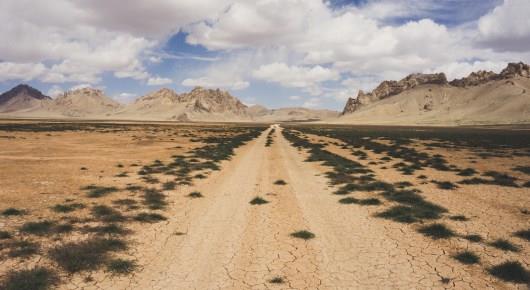FAO, Uzbekistan to cooperate on sustainable use of cold winter deserts

Uzbekistan has joined the Central Asian Desert Initiative, which promotes conservation and sustainable use of cold winter deserts in Central Asia. The CADI agreement was signed in Warsaw today by Nizomiddin J. Bakirov, Chairman of the State Committee on Forestry of the Republic of Uzbekistan and Yuriko Shoji, FAO Subregional Coordinator for Central Asia, on the sidelines of the Joint Session of the 74th Committee on Forests and the Forest Industry and the 39th European Forestry Commission.
The three-year, US$ 1.36 million project also includes Kazakhstan and Turkmenistan. Uzbekistan is the first of the three participating countries to sign the agreement.
Cold winter deserts host a rich diversity of endemic species and provide important ecosystem services for local people. Today they are threatened by degradation due to excessive collection of saxaul tree wood for fuel, and inappropriate livestock grazing practices.
“About 85 percent of Uzbekistan is covered by cold winter deserts and semi-deserts, and 83 percent of total grazing takes place in these desert ecosystems,” Shoji said. “FAO will provide expertise in adapting remote sensing-based methods to inventory land use and its changes in Uzbekistan, and valuing natural resource assets.”
FAO will work on awareness raising for public and decision-makers, establishment of an interim body for the Initiative, development of a joint programme of work, and organization of an international conference on conservation and sustainable use of arid areas, Shoji noted.
Ecosystem services and products provided by cold winter deserts include biomass production, sand fixation, firewood, and below- and above-ground carbon storage and buffer functions in the inter-annual carbon cycle.
Known also as Kyzylkum, Karakum and Muyunkum, cold winter deserts have rain and even snowfall during winter months. Since they are found only Kazakhstan, Turkmenistan and Uzbekistan, these countries carry global responsibility for their preservation and sustainable use.
Measures to prevent overuse and degradation of desert habitats through overgrazing, firewood collection and infrastructure development are largely absent. Integration of biodiversity and nature conservation into the countries’ land management practices is essential, but technical capacities need to be built up first.
FAO and the Michael Succow Foundation of Germany, with coordination by the University of Greifswald, developed the CADI project proposal to help the three affected countries address these gaps with modern, participatory methods. The Initiative will receive funding from the International Climate Initiative (IKI), a fund supporting climate and biodiversity projects in developing and transition countries.
The project is expected to get under way with an inception workshop in Uzbekistan in early November. Participants from Kazakhstan, Turkmenistan and Uzbekistan will be invited.
13 October 2017, Warsaw, Poland
